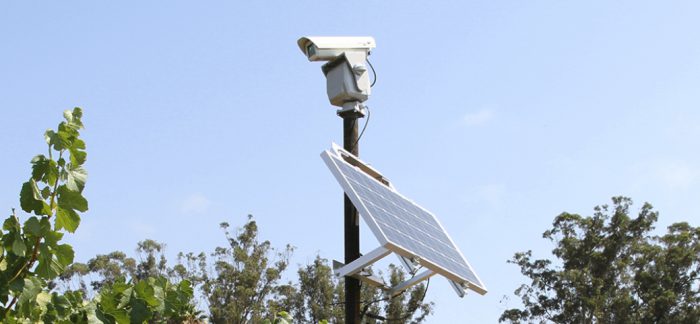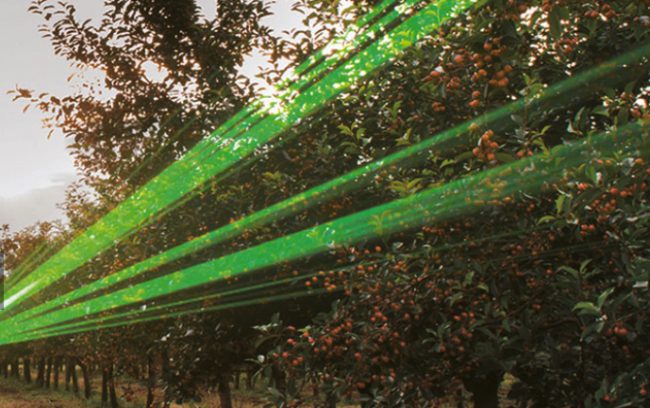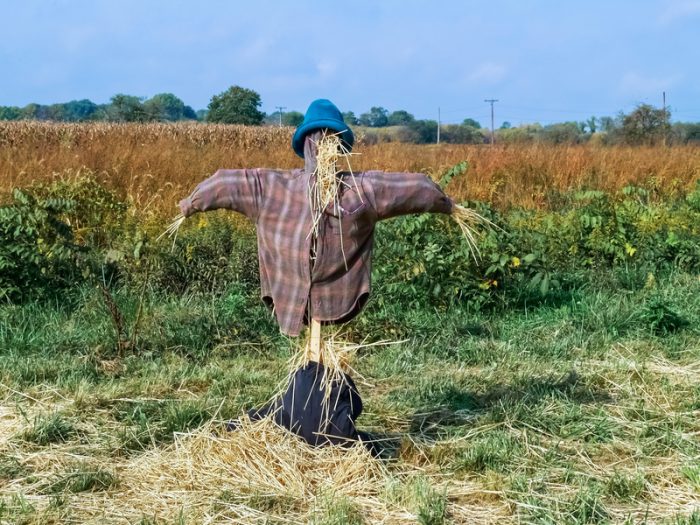Farmers.
Wildlife.
From foxes raiding the chicken coop to rabbits nibbling on the lettuce, the battles between these two groups are as old as farming itself.
And from fences to guard dogs, there are all sorts of methods that farms have used to protect themselves against these meal moochers. Maybe the most timeless one is the scarecrow. You know the kind: a stuffed dummy dressed like a farmer inspecting the fields while keeping animals from eating their fill of crops.
Hopefully.
But in truth, it doesn't work out that way, especially as more intelligent animals—such as birds—get wise to the fact that no scarecrow is actually going to come after them. It's time for a new plan.
May we suggest ... lasers?
You always say let's use lasers!

Meet the 'agrilaser'. (That's a much better name than the ones we came up with...). (Bird Control Group)
Is there anything that isn't cooler after you add lasers? (Go on and think about that one, we'll be waiting here...)
A Dutch company called Bird Control Group makes lasers that are designed to shoo away birds. Here's how it works. Several lasers are mounted on individual poles that overlook the field. They then shoot over top of the crops in an unpredictable fashion that birds are unable to get used to. This annoys the birds and bingo! No more stolen crops!
Does it work? Is it safe?

The lasers are also effective during the day. (Bird Control Group)
In the first case, the answer appears to be yes. An Oregon farmer named Justin Meduri recently told National Public Radio that he uses six lasers to protect his blueberry bushes and he loves them. Before this, he risked losing up to 30 percent of his crop to the birds. With the lasers running though, there isn't a bird to be found.
And it seems that he isn't alone. Bird Control Group says that they've sold around 100 lasers to farmers across the American Northwest. And if they're really as successful as Meduri says, that number will probably grow.
But are they safe? The lasers aren't hot and won't burn the animals. Research is currently being done at Purdue University to discover whether or not there is a risk of the lights blinding the animals.
Until that has been figured out, there doesn't seem to be much of a downside to these bird-bugging beams. Shine on, you crazy lasers!
 Sorry, buddy. You've been replaced. (© Andrew Kazmierski | Dreamstime.com)
Sorry, buddy. You've been replaced. (© Andrew Kazmierski | Dreamstime.com)










I am planning on employing a laser scarecrow in 2022 to protect our industrial hemp crop. My question is, would a rotating laser protect open range (fenced in) chickens from predictor birds? Cheers. Richard